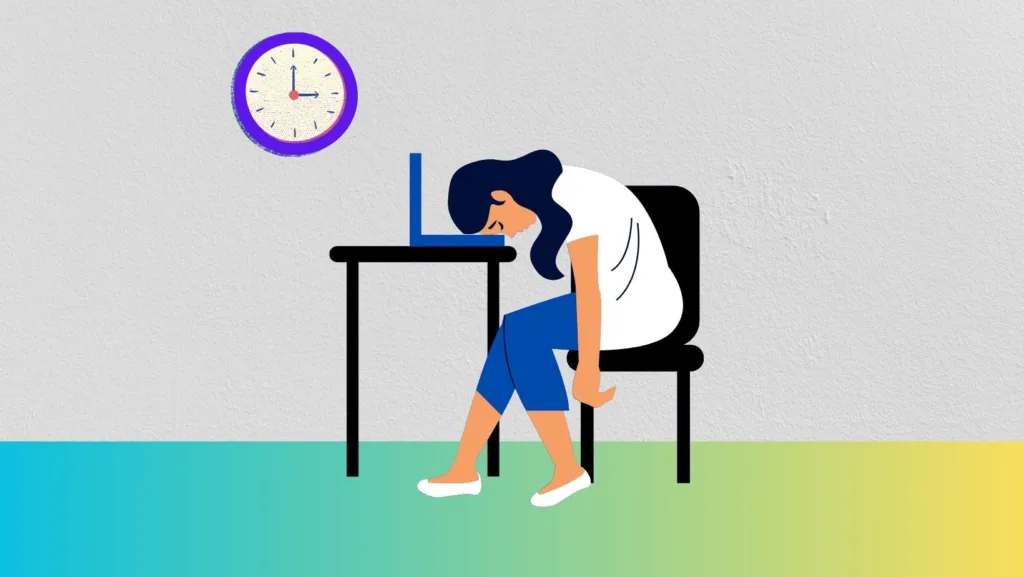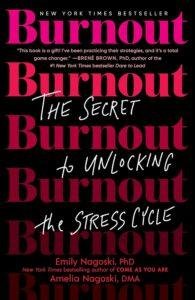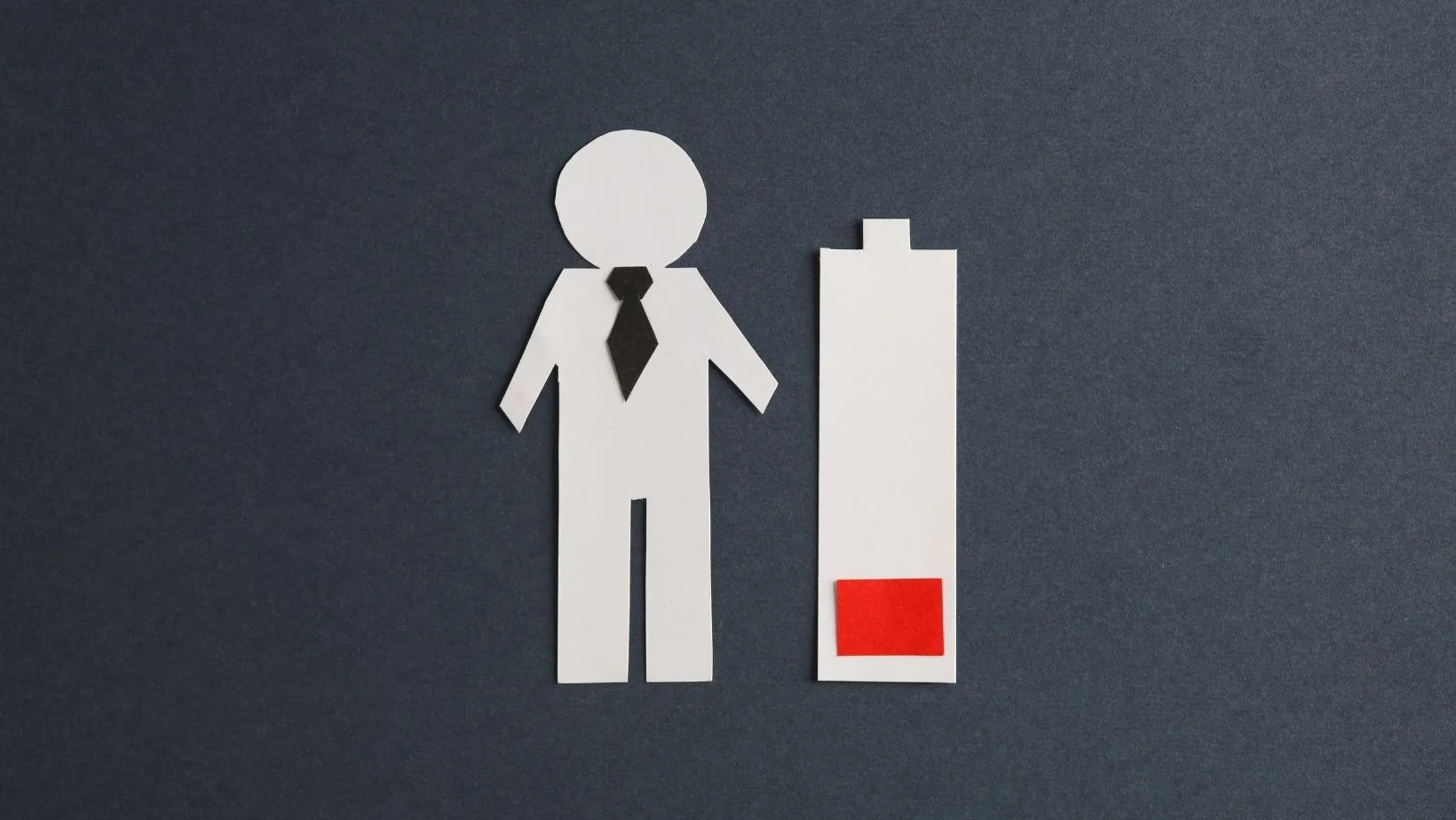Burnouts have increasingly become common in professional life. Burnouts refer to overwhelming episodes of mental as well as physical exhaustion. These can occur with anybody, even when you love your job. When burnout hits, it becomes difficult to think clearly. One might want to give up altogether, but instead, you should find out how to deal with burnout at work.
According to a report by Fiverr International on employee well-being in US, Over half (54%) of workers experienced burnout or mental health challenges due to work in the past year. This was even higher in industries such as Finance (58%) and IT (55%). Top reasons identified for the burnout were intense workload, toxic company culture and pressure from management.
What is Burnout At Work ?
Burnout is a psychological syndrome emerging as a prolonged response to chronic interpersonal stressors on the job. WHO refers burnout as an ‘occupational phenomenon’ that arises from chronic work stress that goes unmanaged. There are majorly three parts of burnout- Exhaustion, feeling that nothing is going to work out and detachment from work. Each of these contribute to a person’s stress and results in burnout at work. The term was first coined by Herbert Freudenberger in his book in 1980, who defined burnout as a ‘state of mental and physical exhaustion caused by one’s professional life’.
Buy Books on Burnout at Work here : https://amzn.to/480RarX
Signs and Symptoms of Burnout
Here are some of the signs and symptoms to identify if you’re going through burnout at work. If it is a yes to most of the below questions, it is time to do something about it.
Physical
-
- Do you constantly feel tired or fatigued?
- Do you face muscle or stomach aches frequently?
- Have your headaches or migraine increased suddenly?
- Have you faced fevers, viral , cold or cough frequently over last couple of months? Has your immunity dropped?
- Have you started eating more or extremely less or witnessed changes in hunger?
- Do you face difficulty while sleeping recently?
Emotional
-
- Have you lost all motivation and energy at work?
- Does nothing at work excites or makes you feel satisfied?
- Are you constantly irritated and frustrated with your tasks?
- Do you feel negative or detached from your job?
- Do you constantly doubt your ability or feel like a failure?
- Do you feel trapped or helpless at work?
Behavioral
-
- Have you cut down or reduced any social interactions at work?
- Has your productivity at work gone down ?
- Have you taken support of binge eating habits, drugs or alcohol to cope with your situation?
- Do you feel like procrastinating any task given to you?
- Have you start taking out your frustrations on someone at home or your junior at work?
Cognitive
-
- Do you find yourself indulging in negative self talk at work?
- Have you started forgetting a number of tasks or things or lost track of things?
- Do you find it difficult to focus or concentrate on one task at a time?
Interpersonal
-
- Do you feel lonely or keep yourself isolated from others at work?
- Have been in conflicts with your colleagues frequently?
- Have you been finding it difficult to maintain work relationships or feel unsupported all the time?
Stages of Burnout
Honeymoon Stage
This stage usually refers to the period where you enter into a new job or role. During this phase, your levels of energy, commitment , dedication, positive feelings, creativity etc. are high. This is the time when skipping lunches or putting extra hours do not result in a burnout. While this is an ideal stage, it does not last forever. Hence any extra tasks or overworking hours that you take up need to managed carefully as it might lead you to the next stage which could be a recipe for burnout.
Onset of Stress
This happens when you settle into your job and gradually experience both good and bad days. The phase arises when your stressful days turnout out to have a negative impact on your physical health. This phase is accompanied by frequent headaches, migraines, stomach aches, changes in your hunger and sleep patterns, anxiety etc.
Chronic Stress
This is a stage where stress and physical symptoms of stress become common in your life. Along with physical symptoms, you tend to experience signs of withdrawal from social interactions, constant procrastination of tasks or not being able to complete any on time. You interpersonal relationships at work also tend to deteriorate. Sometimes, the frustration at work might also reach home and affect your family and personal relationships.
Burnout

This is a stage when you are no longer able to take it. If you do not take any steps to curb your mental health, you are bound to reach the stage of actual burnout. The sense of disappointment, frustration or failure instances at work might make you believe that you are at wrong place. You may also doubt your capabilities or engage in negative self- talk. At such times, you might feel like quitting or escaping work permanently. If not treated or taken action before, this is the time for you to do something about it.
Habitual burnout
Habitual workout or ‘enmeshment’ is a stage where burnout becomes a part of your life. Before you realize, you have symptoms of chronic stress, chronic mental and physical fatigue or depression. Anything about your work or personal hobbies that you loved before might not make you feel alive anymore. In case you realize that you have reached this stage, you should seek a professional.
Causes of Burnout
A number of reasons that can give rise to a burnout. They might originate from your work environment but it is not always so.
1. Professional
Factors such as little or no recognition or reward might lead to being demotivated at work. It is also possible that you have a high pressure, chaotic or ambiguous work environment. Ambiguity also means that you do not have clarity of the tasks in hand or that are in future to come. Hence you are unable to measure the demands at work – if they are overly challenging or not challenging at all.
2. Lifestyle
Lack of balance between your personal and professional life is the foremost cause of burnout. Other lifestyle issues such as unhealthy eating, lack of proper sleep or overexerting yourself without taking enough breaks can cause burnout at work.
3. Personality
If you are someone who has been a perfectionist and high achiever all your life, you might be prone to burnout. Anything going wrong might make you feel at the end of the world. This may accompany feelings for not being good enough or nothing going right. Another factor that may lead to burnout is the constant habit of being in control. You do not like asking for help and turn out to take too much responsibilities over your shoulders.
How to deal with burnout at work ?
1. Build your Community

Research proves that building your support system or community can help with stress management and psychological health. Create a community of work buddies or friends whom you can vent whenever in despair. Having a community helps you look forward to going back to your workplace everyday. Having friends at work to eat and joke with, can help you get through a tough day at work.
2. Set Boundaries
With a busy schedule, it is quite common to get into a default mode of saying ‘yes’ to every task that comes your way. This may ultimately impact your productivity at work. To avoid burnout, it is important to set boundaries to take up tasks that you can handle at a particular time. Start by creating a to-do list and prioritize tasks basis their urgency. In case there are too many urgent tasks in hand, make sure to discuss it with a senior or ask for help within your team. Make sure to stick to work schedule with set lunch hours and on-off timings whenever possible. Setting boundaries helps our brain train itself to focus itself better without causing burnout.
3. Low Hanging Fruits
Sometimes disappointments and failures at work quickly escalate to burnout. Hence it is essential to reach out for low hanging fruits or quick wins. Sort through your tasks and see if there are things that can be quickly achieved or finished with lesser efforts. Usually, people tend to sit or procrastinate over tasks that take a lot of time and efforts, as a result, smaller tasks are left behind. Finishing a smaller tasks will help avoid disappointments and make you feel capable and productive to take up other bigger tasks.
4. Share your concerns
Make sure to speak to your manager, colleagues or team members about your concerns. Usually brain has a habit of making things bigger than they actually are. Sharing concerns will not only help you get support but may also help in shifting your viewpoint on certain items or concerns that appeared worrisome. In extreme burnout conditions, a conversation with your manager can also help you get a different role that may help renew your energy at work. You can also try services provided by employee assistance program if available in your organization.
5. Take care of your health
Any breakdown has a direct impact on your physical and emotional health. Burnout is your body’s way to tell you ‘its high time, action needs to be taken’. To avoid exhausting your body further, make sure to revive your health. Start with physical health – make sure to get at least 6 hours of sleep everyday, dedicate at least 30-45 minutes of exercise, yoga or any physical activity of your choice, make sure to eat healthy for at least 5 days in a week. Be consistent with your routine and you will automatically see an improvement in your mental health as well as energy in your body.
6. Take a short break
One of the biggest causes of burnout are overworking and long extended working hours. Body needs break from time to time in order to recover itself. Take a short break for a week or two where you can create a mental distance from your inbox and work calls. While working for some years, many of us feel guilty about taking breaks or leaving unfinished tasks. You can plan your to-do lists in a manner that is feasible for you to finish before your break or create a timeline to complete after coming back. Remember, if you do not take breaks voluntarily, your body will force you to do so later. Make sure to also take short breaks through out the day for coffee or walk to avoid burnouts.
7. Mindfulness

Practicing mindfulness is a way of understanding your thoughts and feelings. This can help you in identifying your thought process and taking the right actions in resolving your current state of mind. You can take up any mindful activity – meditation (guided or unguided) , breathing exercises, journaling etc. to start your journey towards mindfulness.
Read more on Mindfulness and its benefits here.
8. Changing Mindset
A very important factor in avoiding burnout is to change the way how you look at your work. While taking breaks might help , it might not solve if you have developed a negative outlook towards work. Not all of us are in a condition to switch or leave jobs at all times. In the long run, understanding what reached a burnout for you , was it overload of responsibilities or a negative perception or long working hours etc. Find out your own cause and develop ways on how to make sure that you do not reach burnout stage again.
Lessons from ‘Burnout: The Secret to Unlocking the Stress Cycle’ book

While coming across and reading through a plethora of information on ways to tackle burnout at my own workplace, I came across a very interesting book :’Burnout’. The book by Emily and Amelia Nagoski offers profound insights into understanding and overcoming burnout, particularly among women. The book integrates scientific research with practical advice to help readers recognize and address the root causes of burnout. Here are additional ways to deal with burnout at work from the book:
-
Understanding the Stress Cycle: The Nagoski sisters explain that stress is a biological process that requires completion. Ignoring stress can lead to burnout. They emphasize the importance of completing the stress cycle through physical activities like exercise, deep breathing, and other forms of physical engagement to signal to the body that it is safe.
-
The Importance of Connection: Social support and emotional connection are vital in managing stress. The book highlights how positive interactions, such as sharing feelings with trusted friends or engaging in affectionate touch, can help complete the stress cycle and reduce feelings of isolation.
-
Self-Compassion: A critical component of dealing with burnout is practicing self-compassion. The authors encourage readers to treat themselves with the same kindness and understanding they would offer a friend, which can mitigate the negative self-talk that often accompanies burnout.
-
Rest and Creativity: The book underscores the importance of rest, not just sleep, but also mental rest. Engaging in creative activities and hobbies can be rejuvenating and provide a break from stress.
-
Challenging Societal Norms: The authors discuss how societal expectations and the “human giver syndrome” (the belief that one’s worth is tied to how much they give to others) particularly affect women. They advocate for rejecting these toxic norms and reclaiming one’s autonomy and self-worth.
Final Words by Blissed Men
In case your burnout lasts longer than 6 months, it is time to take it seriously and seek professional help. There are number of resources available offline and online to curb mental effects of burnout. Online and offline support groups connect people facing similar situations and experiences offline help you listen and offer advice within the group. You can also try therapy where professionals provide tools to help change your boundaries and mindset in order to reduce burnout.
Related Read:
How To Deal With Layoff Anxiety


Your article helped me a lot, is there any more related content? Thanks!
Thanks! Here are some related reads for you:
https://blissedmenproject.com/8-ways-to-fight-work-from-home-anxiety/
https://blissedmenproject.com/8-ways-to-manage-your-emotional-wellness/
https://blissedmenproject.com/how-to-deal-with-layoff-anxiety/